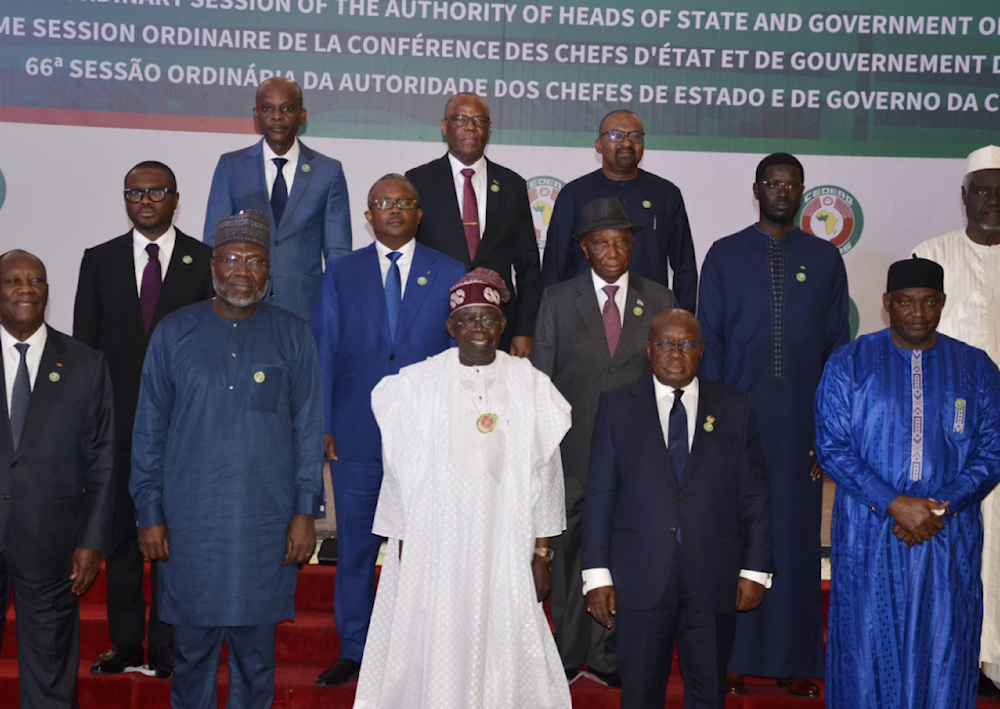ECOWAS leaders meet as military rulers vow to quit bloc
West African leaders from ECOWAS met in Abuja on December 15, 2024, as Burkina Faso, Mali, and Niger confirmed their decision to leave the regional bloc.
-

Nigeria's President Bola Ahmed Tinubu poses for a group photo with other West African leaders before the start of the ECOWAS meeting in Abuja, Nigeria, on December 15, 2024. (AP)
West African leaders from the regional ECOWAS convened on Sunday for a meeting with three member countries governed by military administrations on the verge of leaving the bloc.
Before the Economic Community of West African States conference, Burkina Faso, Mali, and Niger confirmed as "irreversible" their decision to leave the group a year ago, accusing it of being submissive to ex-colonizer France.
The impending exit of the three Sahel states might have a significant influence on free commerce and travel, as well as security cooperation.
Senegal's President Bassirou Diomaye Faye, who was selected as a mediator with the breakaway states by the 15-member ECOWAS in July, will attend the conference in Nigeria's capital, Abuja.
Faye stated last week that he was "making progress" in negotiations with the three and that there was no reason for them not to maintain relations, particularly given the security situation.
Involved in mediation efforts has also been Togo's President, Faure Gnassingbe.
"While the impending exit of Burkina Faso, Mali, and Niger from ECOWAS is disheartening, we commend the ongoing mediation efforts," ECOWAS commission president Omar Touray stated at the summit's beginning.
Mali, Burkina Faso, and Niger's withdrawal will take effect next month, one year after their first statement, in January 2024, according to the bloc's laws.
After cutting relations with France and turning their attention to Russia, the three governments created their own confederation, the Alliance of Sahel governments (AES).
The three breakaways did not declare intentions to attend the Abuja conference, but they did have a separate ministerial-level meeting in Niamey, Niger's capital, on Friday.
"The ministers reiterate the irreversible decision to withdraw from ECOWAS and are committed to pursuing a process of reflection on the means of exiting in the best interests of their peoples," according to a joint statement.
The three countries have all seen military coups and Islamist insurgencies in recent years. Guinea, an ECOWAS member, also has a military administration in place following a coup in 2021.
Tensions with ECOWAS escalated after the July 2023 coup in Niger, which led to threats of military intervention and heavy sanctions. However, ECOWAS has since eased its stance, with member states divided on how to address military regimes.
In March, some sanctions on Niger were lifted to encourage dialogue, especially regarding the ousted President Bazoum. Meanwhile, Guinea's military leaders, under pressure from ECOWAS, had initially pledged to hold elections by the end of 2024 but have now reneged on that promise.

 3 Min Read
3 Min Read








